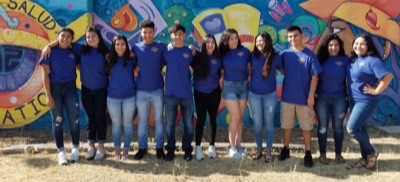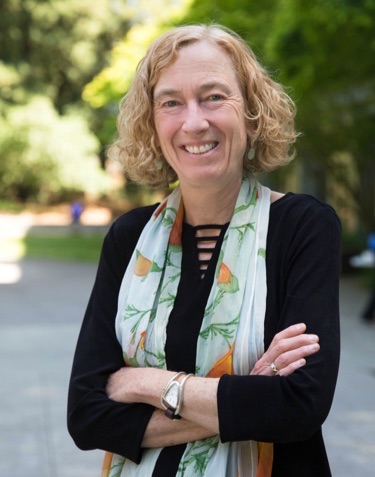Campus News
Two programs will support undergrads in research, service learning, and peer mentoring
Undergraduates in the Division of Social Sciences will soon benefit from two programs that will provide paid opportunities to do research, engage in service learning, and mentor their peers.


Just about everyone knows that undergrads who do hands-on research or have an opportunity to work closely with a faculty member have a better overall college experience. They are less likely to drop out and more likely to graduate on time.
But unpaid internships aren’t an option for students who have to work because of financial need. Undergraduates in the Division of Social Sciences will soon benefit from two programs that will provide paid opportunities to do research, engage in service learning, and mentor their peers.
The first initiative is the “Building Belonging” program, a new five-year effort designed to increase engagement and build a greater sense of belonging through service-learning and research projects. A total of 550 students will participate over the five years, each earning $15/hour for up to 100 hours per quarter. Before the coronavirus outbreak, the pilot program had been slated to begin this spring; the launch is now on hold but faculty are encouraged to apply for funding to hire up to five students per quarter so they will be ready to go when circumstances allow.
The Social Sciences Division is home to several programs that showcase student research, including Steve McKay‘s We Belong survey of immigrants, the Human Rights Investigations Lab, the Blum Center‘s Basic Needs analysis, and others.
“It’s great because the students get faculty mentors, they get paid, and faculty get help with their research,” said Social Sciences Dean Katharyne Mitchell. “It’s a win-win-win.”
Faculty can’t wait to participate, added Mitchell: “It’s an opportunity to pay their students, and it’s life-changing for the students. This will bring in students who would otherwise be working at Starbucks.”
In Anthropology, Assistant Professor Vicky Oelze looks forward to being able to pay undergraduates who code video clips of primates and other wildlife recorded at African field sites, currently only for academic credit. Students play an invaluable role, reviewing hundreds of hours of footage of chimpanzees to identify individuals and their behavior, as well as other flora and fauna. By doing this labor-intensive review and coding of footage, undergraduates free Oelze to do broad-scale analysis.
“The students love it,” said Mitchell. “They get really good at it, and Vicky takes two of the best students to the field in Tanzania in the summer. These opportunities can be a springboard to deeper research.”
The Helen and Will Webster Foundation has funded the pilot program, with a commitment to fund a subsequent five-year effort. Mitchell approached Alec and Claudia Webster with the proposal, because she knows they support Chancellor Cindy Larive’s commitment to enhancing student success.
“The data are very clear that this kind of mentoring relationship with students aids in the retention of all students, particularly first-generation and underrepresented students,” said Mitchell. “It provides a sense of belonging.”
When the program launches, 50 students will make up the inaugural cohort, followed by 100 students per year thereafter. Annual assessments, including student surveys, will provide opportunities to “fine tune” the program, which will be administered by the Institute for Social Transformation. An annual research symposium will give students a chance to present their work alongside their faculty mentors, and an evaluation at the end will compare educational outcomes of participants with similar students who were not involved.
“Evaluation is very important, because we want this to work over the long term, and we want to develop a model that can be implemented in other divisions and on other campuses,” said Mitchell.
Lead Peer Advising Program
The second initiative is a five-year extension of the division’s successful Lead Peer Advising Program, which began as a pilot program two years ago. This program, which pays undergraduates to provide academic advising to students in their major, will meet two critical needs simultaneously: It will ease the campus shortage of academic advisors while offering students an attractive paid, on-campus professional development opportunity.
Prior to this expansion, professional undergraduate advisers trained students, who received pay and academic credit, but they could only earn credit for one quarter. “Students mentored their peers, helping get them through the major,” said Mitchell. “Then, just as they were getting really good at their mentoring skills, they had to stop, because they couldn’t receive any more credits. Now they can shift into paid positions, which has the added advantage of freeing up the professional advisors from having to train new students every quarter.”
The Helen and Will Webster Foundation provided the funding for the initial pilot program, as well as the new five-year expansion. With the infusion of new support, each department will be eligible to employ two lead peer mentors per quarter, according to Mitchell.
“We agree with the chancellor’s vision for undergraduate student success, and we asked ourselves what would help us realize those goals,” said Mitchell. “In the social sciences, close relationships with faculty and good advising are two key factors. These programs are exactly what I felt would be most beneficial for the success of our students and I am delighted that this generous gift has enabled us to follow through on this vision.”